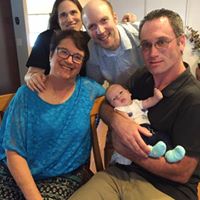If someone is a tricenarian, how old are they?
A tricenarian is someone who is in their thirties (age 30 to 39). Similarly, someone in their 20s is a vicenarian, 40s a quadragenarian, 50s a quinquagenarian, 60s a sexagenarian, 70s a septuagenarian, 80s an octagenarian, and 90s a nonagenarian. If someone reaches the age of 100, they become a centenarian.
A recent study at the Academy of Medical Sciences in Oxford, proved the human brain does not reach adulthood until the age of 30. People in their early 30s find mental tasks, such as chess and mind puzzles, easier than people of other ages. Marie Curie (1866-1934), for example, was awarded the Nobel Prize in physics for her work on radioactivity at the age of 36. Similarly, Sigmund Freud (1856-1939) coined the term 'psychoanalysis' aged 39.
Unfortunately, the tricenarian years are also when the brain starts to lose neurons, which makes retaining memories or learning new information harder as the brain ages.
The Centers for Disease Control and Prevention (CDC) has revealed that women are both physically and financially better prepared for childbirth in their thirties. Results of a thirteen year study suggest that women aged 37 and men aged 39 are more likely to finish in the top ten of marathon races. This coincides with the peak of their physical abilities.
More Info:
www.askqotd.com





